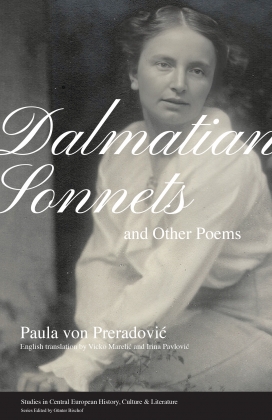
COVID-19 and Pandemics in Austrian History (Contemporary Austrian Studies, vol. 32)
Description
In early 2020, the emergence of the COVID-19 shook the globe. Quickly the world began to search history for lessons from past pandemics, and to compare the experience of COVID in different countries. This volume of Contemporary Austrian Studies is a part of these efforts, dedicated to exploring aspects of the history of epidemic disease in Austria, as well as the peculiarities of the Austrian experience of COVID-19. The essays consider earlier pandemics such as smallpox, Spanish flu, polio, typhus, and HIV-AIDS in an Austrian context. They also analyze facets of the Austrian societal response to the SARS-Cov-2 virus. Taken together, the research demonstrates how the study of disease yields important insights into the workings of Austrian society. It also serves as a reminder of the inseparability of nature and human affairs, and of the importance of a robust, global public health system to bolster societal resilience going forward.
Author Bio
Marc Landry is assistant professor of Central European history and Associate Director of the Austrian Marshall Plan Center for European Studies at the University of New Orleans. He teaches courses in Central European, global, and environmental history. His research focuses on the environmental history of modern Europe. He has held fellowships from the German Academic Exchange Service, the Deutsches Museum, the Institute of Electrical and Electronics Engineers, and the Fulbright Association. His research has appeared in the journals Environmental History and Journal of Global History, and he co-edits the series Contemporary Austrian Studies. Currently he has completed a book manuscript on the damming of the Alps in the nineteenth and twentieth century.
Dirk Rupnow is the dean of the Faculty of Philosophy and History, a professor of Contemporary History at the Institute for Contemporary History, and the founding coordinator of the Research Center “Migration & Globalization” at the University of Innsbruck, Austria. He held the Distinguished Visiting Austrian Chair Professorship at Stanford University in 2016–2017, and is a member of the International Advisory Board and a consultant to the House of Austrian History, Vienna, as well as the International Advisory Board of the Vienna Wiesenthal Institute for Holocaust Studies. Prof. Rupnow’s publications include Die “Zentralstelle für jüdische Auswanderung” als Beraubungsinstitution, coauthored with Gabriele Anderl (2004); Vernichten und Erinnern: Spuren nationalsozialistischer Gedächtnispolitik (2005); and Judenforschung im Dritten Reich: Wissenschaft zwischen Politik, Propaganda und Ideologie (2011).





